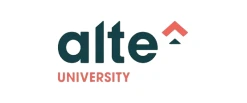Tbilisi
CapitalGeorgian
Language+995
Dialing CodeGeorgian Lari (GEL)
Currency3.68M
Population3000-7000 USD
Tuition Fees6000 USD per month*
Living ExpensesFall | Spring
IntakesWhy Study in Tbilisi, Georgia?
Tbilisi, Georgia’s vibrant capital, combines a rich cultural heritage with modern education in a welcoming environment. It offers students high-quality education in various fields, including dentistry and medical studies, at an affordable cost, set in a city steeped in history and innovation. Home to prestigious universities and a growing international student community, Tbilisi is the perfect destination for those seeking an enriching academic experience.
Benefits
Affordable Living Costs
Tbilisi offers an affordable lifestyle, making it easier for students to manage their expenses.
High-Quality Education
The city boasts top universities with internationally recognised degrees.
Rich Cultural Heritage
Tbilisi blends ancient traditions with modern innovation, creating a unique experience.
Vibrant Student Life
The city is full of social activities, clubs, and events for students to enjoy.
Growing International Community
Tbilisi attracts students from around the world, fostering a diverse academic environment.
Strategic Location
Situated between Europe and Asia, Tbilisi offers excellent travel and business opportunities.
Explore MetaApply Calculators
Eligibility Criteria
| Educational Qualifications | Applicants must have completed secondary education (high school diploma or equivalent). |
| English Proficiency | Proof of English proficiency through tests like IELTS or TOEFL is required for most programmes. |
| Age Requirement | Students must typically be between 18 and 25 years of age at the time of application. |
| Course Prerequisites | Specific programmes may have additional subject or grade requirements, depending on the course. |
Required Documents
| Valid Passport | Ensure your passport is valid for longer than your intended stay in Georgia. |
| Admission Letter | A letter confirming your acceptance into a Georgian university. |
| Completed Application Form | Fill out and submit the required application form with supporting documents. |
| Academic Transcripts | Provide your full academic description from previous studies. |
| Proof of Nationality | Submit a document confirming your nationality, such as a national ID. |
| English Language Test Scores | Provide English language test scores if required for your programme. |
| Travel Insurance | Obtain travel insurance covering the duration of your studies in Georgia. |
| Visa Application Form | Complete and submit a visa application for study purposes. |
| Passport-Sized Photographs | Provide recent passport-sized photographs as per university requirements. |
| Birth Certificate | Submit a copy of your birth certificate. |
| Testimonials and LOR | Include any testimonials and a Letter of Recommendation (LOR). |
VISA Requirements
To study in Tbilisi, you must apply for a student visa before your arrival.
| Valid passport with at least 6 months validity |
| Proof of acceptance from a Georgian university |
Cost of Study in Tbilisi, Georgia
The cost of studying in Tbilisi is relatively affordable compared to many other European countries. Tuition fees are low, and living expenses are manageable, allowing you to focus on your studies without the financial stress.
| Undergraduate Programmes | Tuition fees typically range from 3000 USD to 6000 USD per year. |
| Post-graduate Programmes | Tuition fees generally range from 4500 USD to 7000 USD per year. |
Please note: All information is sourced from web and the data may vary—kindly refer to official or government websites for the most accurate details.
Countries in Europe
Process of MetaApply
Frequently Asked Questions
Student living costs in Georgia are generally affordable, ranging from 300-600 GEL per month for basic expenses.
Many universities offer programmes in English, so Georgian language skills are not essential, though they can be helpful.
Yes, international students typically need a student visa to study in Georgia. You should apply after receiving an admission letter.
Yes, many Georgian universities offer internationally recognised degrees, making them valuable for global career opportunities.
Most universities in Georgia have two main intakes: Fall (September) and Spring (February).
























